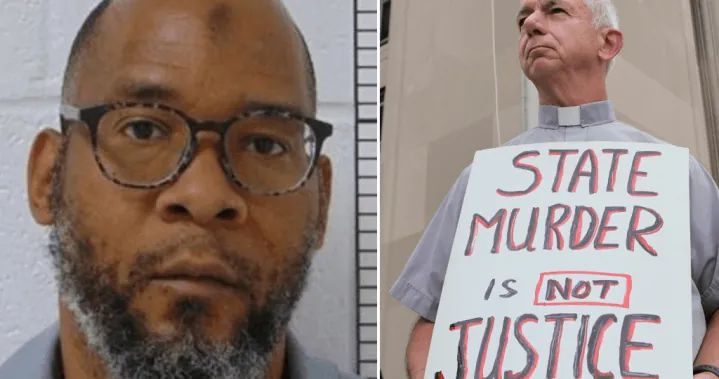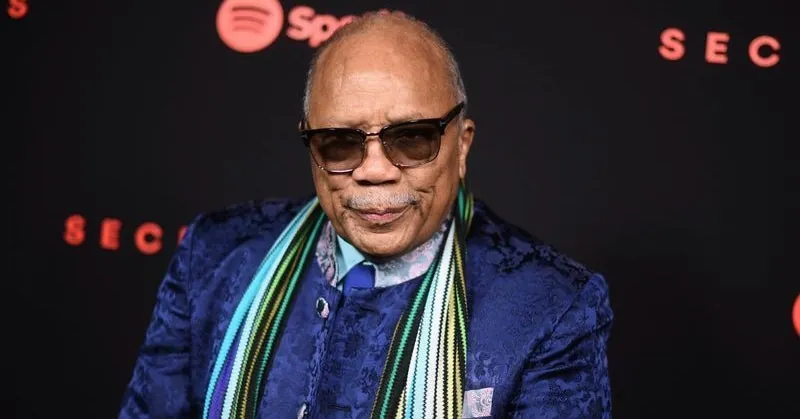
Outcry as Missouri Executes Innocent Man: Marcellus Williams' Case Sparks National Debate on Justice System
2024-09-25
Author: Noah
Outcry as Missouri Executes Innocent Man: Marcellus Williams' Case Sparks National Debate on Justice System
In a controversial and heartbreaking event, Marcellus Williams, a 55-year-old man from Missouri, was executed by lethal injection on Tuesday evening, despite widespread claims of his innocence and mounting calls for the state to halt his execution. Williams had been convicted in 1998 for the brutal murder of Lisha Gayle, a former reporter and social worker who was stabbed 43 times in her home. His execution has reignited debates about the use of the death penalty and the integrity of the judicial process in America.
Hours before the execution, advocates, including defense lawyers, prosecutors, and even members of the victim's family, pleaded with Missouri Governor Mike Parson to intervene. Their arguments were backed by significant new evidence, including DNA analyses that refuted the claim that Williams' DNA was found on the murder weapon. This evidence, which emerged earlier in the year, was not available during Williams' original trial and has led many to question the integrity of the legal proceedings that resulted in his conviction.
In a gripping twist, Williams' lawyers asserted that key witnesses against him were bribed. A girlfriend and a cellmate’s testimonies played crucial roles in securing his conviction, yet their credibility was shrouded in doubt because both had criminal backgrounds and might have been motivated by a $10,000 reward. As the execution date loomed, thousands of signatures were gathered in a desperate plea for clemency, yet these efforts fell on deaf ears.
The fallout from Williams' execution has been swift and severe. Civil rights organizations, including the NAACP, have condemned the actions taken by the state, accusing it of "lynching" an innocent Black man. They argue that when definitive DNA evidence suggests innocence yet the state persists in executing the individual, it reflects a broken criminal justice system. The Innocence Project echoed these sentiments, stressing that Williams' story is part of a disturbing pattern of wrongful convictions in the U.S.
Williams had maintained his innocence throughout his incarceration and had even become a respected figure in prison as he served as an imam, dedicating himself to poetry and spirituality. His last statement, “All Praise Be to Allah in Every Situation!!!” resonated with his supporters and family, who mourn the loss of a man they believe deserved a second chance.
During this tumultuous time, the issue of racial discrimination within jury selection has also been highlighted. It came to light that during Williams’ trial, the prosecuting attorney admitted to removing a Black juror because they looked too similar to Williams. This revelation raised further questions regarding the fairness of the trial and the influence of racial bias in capital punishment cases across the United States.
In a disheartening end to the case, both the Missouri Supreme Court and the U.S. Supreme Court declined to grant a stay of execution. Justices Sonia Sotomayor, Elena Kagan, and Ketanji Brown Jackson dissented, suggesting that the court should have paused the execution to reconsider the case in light of the new evidence.
Williams became the third inmate executed in Missouri this year and the 100th since the state reinstated the death penalty in 1989, a grim milestone that underscores the ongoing national conversation about the death penalty and its ramifications. As advocates continue to rally for justice and reform in the legal system, Williams' execution serves as a painful reminder of the lives affected by what many consider a flawed system.
The tragic fate of Marcellus Williams raises the urgent question: how many more innocent lives will the justice system claim before meaningful change comes?









 Brasil (PT)
Brasil (PT)
 Canada (EN)
Canada (EN)
 Chile (ES)
Chile (ES)
 España (ES)
España (ES)
 France (FR)
France (FR)
 Hong Kong (EN)
Hong Kong (EN)
 Italia (IT)
Italia (IT)
 日本 (JA)
日本 (JA)
 Magyarország (HU)
Magyarország (HU)
 Norge (NO)
Norge (NO)
 Polska (PL)
Polska (PL)
 Schweiz (DE)
Schweiz (DE)
 Singapore (EN)
Singapore (EN)
 Sverige (SV)
Sverige (SV)
 Suomi (FI)
Suomi (FI)
 Türkiye (TR)
Türkiye (TR)